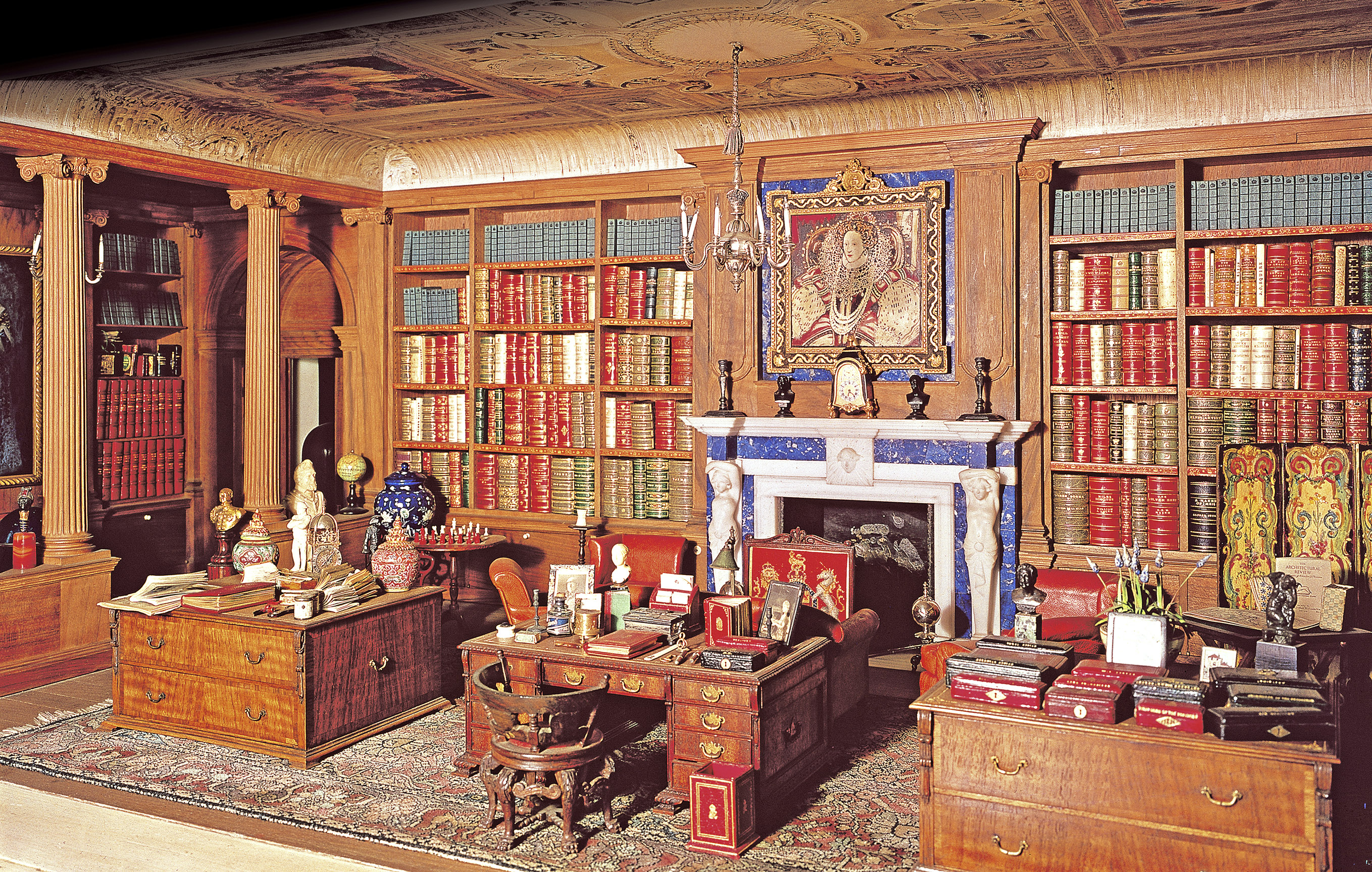The story
Vita Sackville-West wrote for the library of Queen Mary’s Dollhouse is a
jeu d’esprit. Vita was not a humorist, nor was she much given to
whimsy, but her teasing children’s tale of a boastful, “lively . . .
inquisitive spirit,” whose “dark little clubbed head,” like Vita’s,
“gave her a boyish, page-like appearance,” is essentially a joke. As
such it is unique among Vita’s fiction.
First conceived in 1921, Queen Mary’s
Dollhouse was the brainchild of Princess Marie Louise of
Schleswig-Holstein, a first cousin of the Queen’s husband, George V.
Vita’s inclusion among the 171 authors to whom the Princess wrote
requesting a special contribution for the dollhouse library is proof of
the stature she had attained early in her career. By 1923, aged 31, Vita
had published in the space of six years three novels, a novella, two
volumes of poetry, and two nonfiction titles based on her family
history: Knole and the Sackvilles and The Diary of Lady Anne Clifford.
Her recent election to the committee of the PEN Club further stamped
her as an established author. The Princess’s intention was to gather “a
representative, rather than a complete” kaleidoscope of the period’s
leading writers. Healthy sales figures and a degree of critical acclaim
directed her to Vita. In this rarefied prewar world, Vita’s status as
the only daughter of Lord Sackville of Knole was an added
recommendation. The invitation was flattering. It placed Vita on a par
with established best-sellers Arnold Bennett, John Galsworthy, and
Rudyard Kipling and, more remarkably, Thomas Hardy, Joseph Conrad, and
the poet laureate, Robert Bridges.
–Matthew Dennison
 Queen Mary’s Dollhouse library
Queen Mary’s Dollhouse library
Keine Kommentare:
Kommentar veröffentlichen